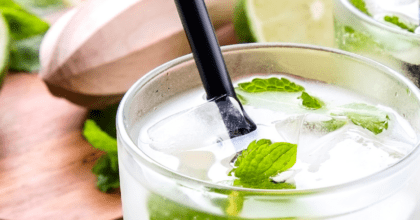One-third of Brazilian consumers use snacks as a meal replacement as inflation soars
- 52% of Brazilian consumers have cut superfluous items (eg snacks) from their shopping list due to price increases and inflation
- 40% of consumers say they prefer snacks with sustainable packaging
- Nearly 4 in 10 (39%) consumers ages 16-34 say they consume snacks to relax/destress
Rising inflation has Brazilian consumers feeling the pinch resulting in a decrease in nonessential spending. According to the latest Mintel research, 52% of Brazilian consumers have cut superfluous and nonessential items, like snacks, from their budget to save money. Another cost-cutting measure is replacing full meals with snacks which a third (33%) of Brazilians have done in the past three months.
Looking at why consumers are replacing meals with snacks, two-thirds (66%) say they do so to satisfy their hunger. While seemingly obvious, Mintel’s 2023 Global Food & Drink Trends, Savvy Sustenance, indicates that, in this time of economic instability and high inflation, consumers are favoring foods that leave them satiated for longer and offer a more complete nutritional composition, which can be directly tied to snack consumption.
Laura Menegon, Food and Drink Analyst, LatAm, said:
“Meal replacement is not new, especially as consumers are more and more stretched for time; however, as these consumers are opting for convenient products, there is an opportunity for snack brands to launch products that are convenient but also provide a similar feeling of satiety to that of a meal and with more varied ingredients and nutrients profiles. Products with higher energy and nutritional density that offer a longer feeling of satiety are well positioned to win consumer preference for better value for money.”
Consumer concern about sustainable packaging and ingredients
Packaging is the main concern of sustainability-minded snacking consumers as 40% prefer snacks in sustainable packaging, while 28% prefer natural snacks because they generally come with less packaging. Consumers are looking for brands to be more transparent as shown by 36% of Brazilian consumers expecting more brands to make clear statements about their sustainable actions.
Furthermore, of the one-third (30%) of consumers who worry about the sustainability of the ingredients used in snacks, 76% are willing to pay more for high-quality/premium snacks. Lastly, 22% would stop eating a snack if they knew the brand doesn’t contribute to sustainability initiatives.
“Since sustainability is an increasingly important factor for Brazilian consumers when it comes to snack packaging and ingredients, manufacturers and retailers will need to be transparent in their efforts to reduce waste and reuse materials. Reduction can occur by eliminating secondary packaging and using biodegradable and thinner material. Brands can also invest in reusable packaging, which not only carries the credentials of sustainability but also adds value to the product. Brands that prioritize sustainable packaging solutions are likely to appeal to Brazilian consumers,” continued Menegon.
Snack consumption and mental health
Finally, Mintel research shows that young adults aged 16-34 agree snacking helps alleviate mental and emotional health issues: 30% of consumers aged 16-34 snack to cheer themselves up, compared to 16% of those aged 35+. Additionally, 39% of those aged 16-34 snack to relax/de-stress, compared to 29% of those aged 35+. The relationship between snacking and the relief or control of emotional issues is especially relevant for young consumers as two in five consumers aged 16-34 agree that eating snacks helps them deal with anxiety (41%) and is a good way to de-stress (42%), compared to a third (32% and 36%, respectively) of consumers aged 35+.
“The relationship between snacking and the relief or control of emotional issues is especially relevant for young consumers and by offering a pleasant and relaxing moment in the middle of the day, snacks have been gaining importance in the daily routine of Brazilians. Brands should seek to provide products with the desired benefits for each snacking consumption occasion, and highlight the attributes most desired by this younger age group to attract those who want to relieve stress and anxiety by providing moments of relaxation and indulgence,” concluded Menegon.
Additional research on Brazilian consumer attitudes toward snack consumption and interviews with the analyst are available upon request from the Mintel Press Office. For those interested in purchasing the full report, please visit the Mintel Store.

Laura is a Food & Drink Analyst on the LatAm reports team conducting consumer research and writing about the food, beverage and lifestyle categories.
-
Snacking Consumption Habits Brazil 2023Learn more about Brazilian consumers and their snacking habits....Buy the Report
-
Mintel LeapMintel Leap is a revolutionary new AI-powered platform that will transform your research process....Book a demo






































